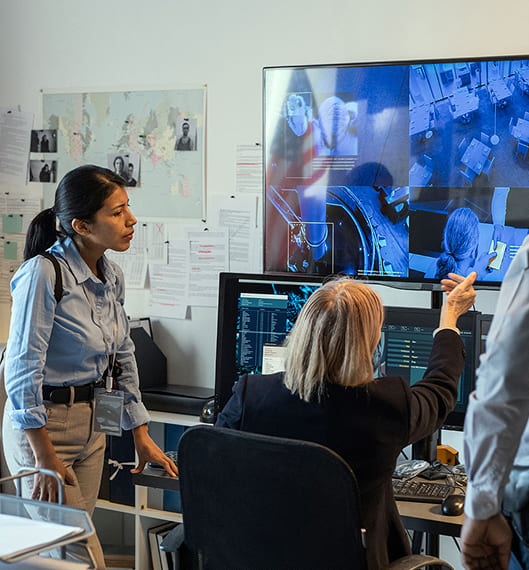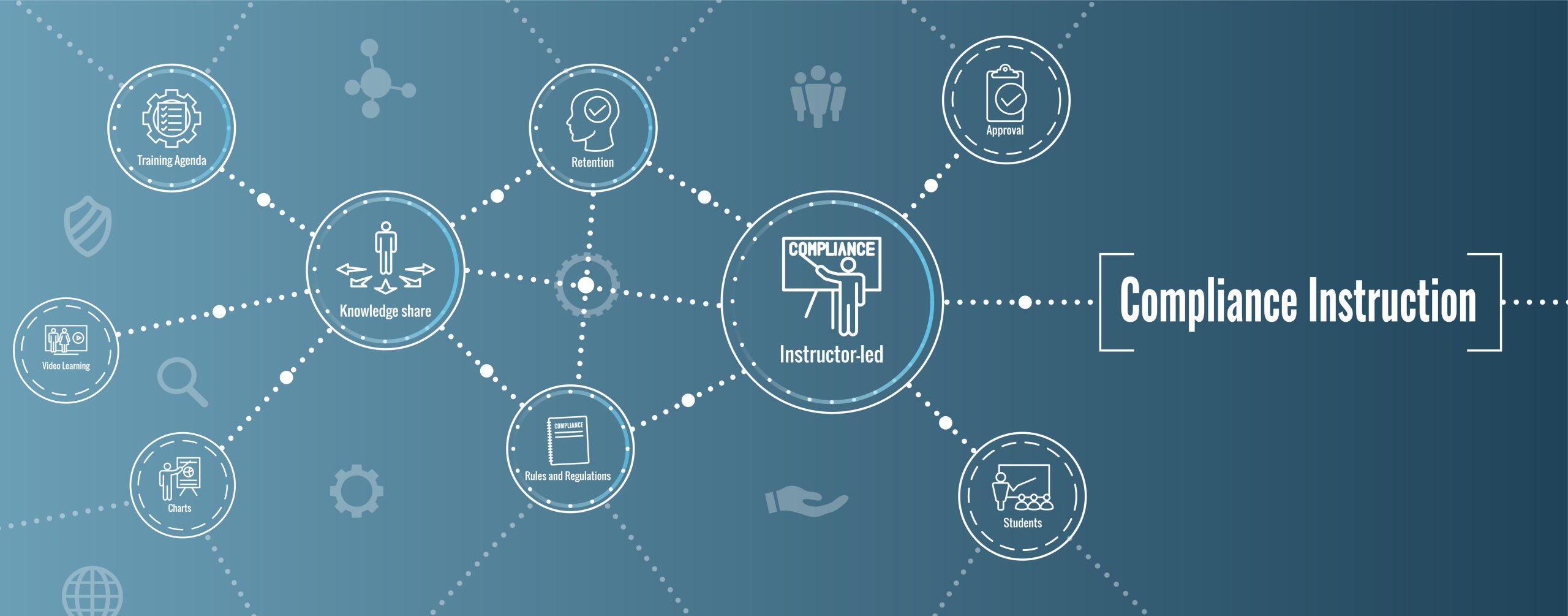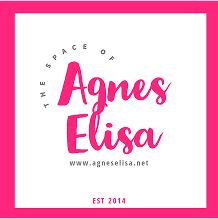Academia

Educating the Next Generation of Analysts, Investigators, and Learning Professionals
Designing Learning Experiences That Engage, Educate, and Deliver Results
At The Space of Agnes Elisa, my work as a professor, trainer, and academic contributor is grounded in over two decades of practical experience in law enforcement, intelligence, and instructional Design. I bring that real-world knowledge into the classroom, whether in traditional academic settings, continuing education programs, or professional development workshops.
My academic contributions combine research, theory, and practice to support the development of critical thinking, ethical analysis, and strategic decision-making in the next generation of professionals.

Teaching and Curriculum Development
I have taught and developed courses for universities, law enforcement academies, and online learning platforms, with a focus on high-impact topics relevant to today's complex environments
Subjects I teach include:
Criminal Intelligence Analysis
Organized Crime and Narcotrafficking
Threat Assessment and Red Flag Detection
Forensic Psychology and Criminal Behavior
Instructional Design and Digital Learning Strategies
Data Analysis for Investigations
Compliance, Ethics, and Corporate Risk
Writing and Reporting for Intelligence Professionals
Academic Institutions and Programs
My academic and teaching collaborations have included:

University-level instruction in criminal justice, criminology, and Ed learning design
Law enforcement and intelligence training programs across Latin America and the United States
Guest lectures and seminars at international conferences
Development of certified online courses and learning pathways
Mentoring and academic advising for undergraduate and graduate students
Curriculum consulting for higher education institutions and government training academies
Research and Publications
As a practitioner and educator, I contribute to applied research and publish thought leadership on topics such as:
Gang dynamics and urban violence in the Caribbean
Intelligence methodology for crime prevention
Instructional Design for security and compliance training
Case studies on risk analysis and fraud detection
The intersection of learning science and investigative work
Bilingual and culturally adaptive eLearning in justice-related fields
All research is evidence-based and often includes real case examples, APA-referenced frameworks, and practical implications for both academic and operational settings
Educational Credentials
My academic background includes
Graduate studies in Criminal Justice and Crime Analysis
Professional certifications in Instructional Design and Learning Technologies
Continuous learning in AI-driven learning design, OSINT, and digital forensics
Specialized training in intelligence analysis, investigative methods, and adult education
Academic Collaborations and Consulting
In addition to teaching, I offer academic consulting services for:
Curriculum design and program development
Accreditation preparation and learning evaluation frameworks
Faculty development in instructional Design and adult learning
Strategic content creation for academic institutions and training centers
Guest lectures, workshops, and bilingual presentations (English and Spanish)
If your institution is looking to expand its offerings in criminal justice, intelligence, or instructional Design, I bring a unique combination of field expertise and academic rigor.

Decoding Crime, A 20+ years of legacy in the justice field
From INTERPOL to Consulting, Expertise in Criminal Intelligence and Law Enforcement
Welcome to my Learning Catalog! Here, you will find diverse courses tailored to my expertise and experience in Education Design (eLearning) and Criminal Justice (law enforcement). These courses are available in English and Spanish, allowing you to choose the language that best suits your learning needs and goals.
Each course has an accessible cost, a student manual, and downloadable resources designed to support your ongoing professional development. Upon completing a course, you will be awarded a Certificate of Completion.
Rest assured that my exceptional courses guarantee an unparalleled learning experience. Infused with my extensive knowledge and expertise, each course is tailored to ensure your success.
Discover your next course
Choose from programs in intelligence, professional training, and strategic development designed to boost your career
Learn and share on our networks:
Let's Build Knowledge Together
Transforming Training Programs into Lasting Organizational Impact
Whether you’re a university, professional school, or research center, I offer bilingual academic expertise to support innovative, ethical, and impactful education.
Contact me to discuss academic partnerships or request a speaker/session for your next event or training program.

Testimonials
A reliable, detail-oriented, confidential dedicated to each project and the apprentices' goals.
NUC / AGM
Deloitte Consulting
Department of Justice
Department of Justice
Border Patrol
Policia de Puerto Rico
Policia de Puerto Rico
Departamento de Justicia
Let's Connect
If you're seeking support in designing your next learning experience or need expert intelligence consulting for your organization, I invite you to reach out.
I offer tailored solutions that align with your goals and challenges, and I'm always ready to collaborate on projects that create meaningful impact

Frequently Asked Questions
Find answers to common queries about academic research, teaching methodologies, and Agnes Elisa’s work in social justice and criminal justice.
What are the primary responsibilities of a Bilingual eLearning Instructional Designer?
A Bilingual eLearning Instructional Designer is responsible for creating compelling, engaging, and culturally appropriate eLearning content for diverse audiences. Duties include:
- Designing and developing eLearning courses using authoring tools like Articulate Storyline, Rise, or Adobe Captivate.
- Translating and localizing content for multilingual learners to ensure cultural and linguistic appropriateness.
- Collaborating with subject matter experts (SMEs) to gather and refine course content.
- Applying instructional design models like ADDIE or SAM to structure the learning process.
- Integrating multimedia elements like graphics, videos, and interactive activities to enhance learning.
What skills are essential for a Bilingual eLearning Instructional Designer?
Key skills include:
- Instructional Design Expertise: Proficiency in designing engaging, learner-centered content.
- Technical Skills: Familiarity with eLearning tools and Learning Management Systems (LMS).
- Bilingual Proficiency: Fluency in two or more languages to ensure accurate translation and cultural relevance.
- Collaboration: Ability to work with SMEs, developers, and stakeholders.
- Problem-Solving: Adapting designs to address unique learner needs and project constraints.
What is the typical process for creating an eLearning course?
The process often follows the ADDIE model:
- Analysis: Identify the learners’ needs, objectives, and content requirements.
- Design: Develop a blueprint, including learning objectives, activities, and assessments.
- Development: Build the course using eLearning tools, incorporating multimedia and interactivity.
- Implementation: Upload the course to an LMS or platform and ensure it functions properly.
- Evaluation: Collect learner feedback and analytics to improve the course.
How does being bilingual enhance an eLearning Instructional Designer's effectiveness?
Being bilingual enables designers to:
- Create inclusive and culturally sensitive content for a global audience.
- Translate and localize training materials while maintaining instructional integrity.
- Communicate effectively with multilingual teams and stakeholders.
- Adapt designs to address linguistic nuances and cultural differences, ensuring relevance and engagement for all learners.
What challenges do Bilingual eLearning Instructional Designers face, and how can they overcome them?
Challenges include:
- Maintaining Consistency Across Languages: Ensuring the same quality and instructional intent in all translations.
- Solution: Use translation memory tools and collaborate with professional linguists.
- Cultural Differences: Adapting content to suit the cultural context of learners.
- Solution: Research and include culturally relevant examples and scenarios.
- Technology Limitations: Navigating LMS restrictions or tool compatibility issues.
- Solution: Test content on various platforms and devices to ensure accessibility.


Insights from Agnes Elisa
Explore thought-provoking articles on education, e-learning, social justice, and more

The Hidden Risks Inside Poorly Translated eLearning Courses: A Guide for Compliance Teams
Why Bilingual Compliance Training Fails—and How Instructional Intelligence Prevents Risk

